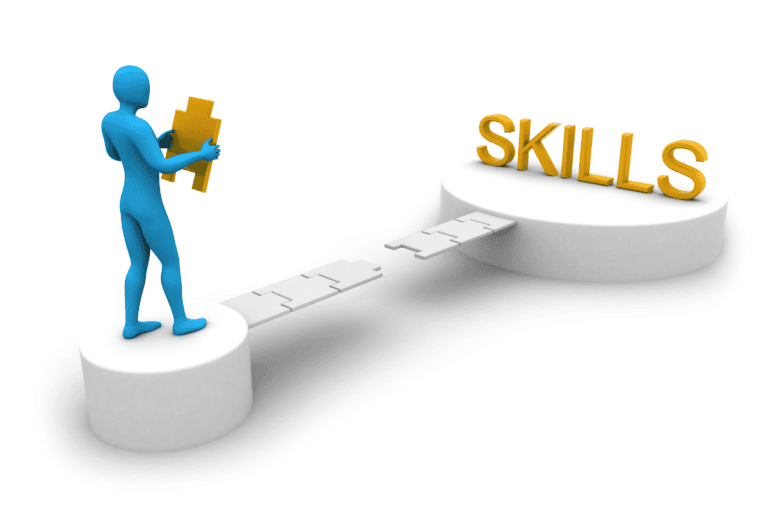Continuous Learning as a Soft Skill
Continuous Learning as a soft skill is crucial for your growth and success in an ever-evolving digital world. It enhances adaptability and problem-solving, keeping you current. It fosters creativity, improves job performance, and broadens career opportunities. Demonstrating a commitment to growth, it underscores your dedication to personal and professional enhancement. Want to discover more insights on how Continuous Learning can elevate your soft skills and career potential?
Key Takeaways
- Enhances adaptability and problem-solving abilities in dynamic work environments.
- Keeps individuals updated in rapidly evolving digital landscapes.
- Fosters innovation and creativity through ongoing learning experiences.
- Improves job performance and enhances career prospects.
- Demonstrates commitment to personal and professional growth for long-term success.
The Importance of Continuous Learning
Continuous learning is a fundamental aspect of personal and professional development, essential for adapting to the ever-evolving demands of the modern world. Personal growth is intricately linked to continuous learning. By actively seeking out new knowledge and experiences, you challenge yourself to evolve and expand your horizons. This process not only enhances your skillset but also fosters a sense of fulfillment and accomplishment as you push past your comfort zone.
Skill advancement is another key benefit of continuous learning. As you engage in acquiring new skills or refining existing ones, you become more versatile and adaptable in various situations. Developing a diverse skill set can open up new opportunities for personal and professional growth, enabling you to tackle challenges with confidence and competence.
Embracing continuous learning as a lifelong journey empowers you to stay ahead in a rapidly changing world and positions you for success in all aspects of life.
Benefits in Professional Development
As you explore the benefits of continuous learning in professional development, you'll find that it opens doors to career growth opportunities that may have otherwise been inaccessible.
By engaging in continuous learning, you actively enhance your problem-solving skills, making you a more valuable asset in your field.
Embracing this soft skill can pave the way for a more successful and fulfilling professional journey.
Career Growth Opportunities
Exploring career growth opportunities is crucial for enhancing your professional development and staying competitive in the ever-evolving job market. By seizing these chances, you can acquire new skills and stay updated with current industry trends, guaranteeing you remain valuable in your field.
- Skill Enhancement: Engaging in growth opportunities allows you to acquire new skills or improve existing ones, making you a more versatile and valuable professional.
- Industry Relevance: Staying abreast of industry trends through career growth opportunities ensures you remain relevant and adaptable to changes within your field.
- Networking: Engaging in career growth activities often leads to networking opportunities, expanding your professional connections and potential opportunities for advancement.
Enhanced Problem-Solving Skills
To develop your problem-solving skills effectively, actively seek out challenging situations that require innovative solutions. By embracing these opportunities, you can enhance your critical thinking abilities and expand your capacity to generate innovative solutions.
Improved critical thinking allows you to approach problems from different perspectives, enabling you to identify unique strategies to overcome obstacles. Engaging in complex problem-solving tasks not only sharpens your analytical skills but also equips you with the tools needed to navigate intricate professional challenges.
Through actively seeking out and tackling demanding scenarios, you can cultivate a mindset geared towards generating creative and effective solutions, fostering continuous growth in your problem-solving skills and overall professional development.
Strategies for Lifelong Learning
Considering the dynamic nature of the modern work environment, incorporating diverse learning methods is key to fostering continuous personal development. To enhance your lifelong learning journey, here are three effective strategies:
- Set Clear Goals: Establish specific objectives for your personal development and skill acquisition. By defining what you want to achieve, you can tailor your learning efforts to meet those goals. This clarity helps you stay focused and motivated throughout the learning process.
- Embrace Variety: Explore different learning approaches such as online courses, workshops, mentorship programs, and self-study materials. Diversifying your learning experiences can provide you with a well-rounded skill set and a broader perspective on various subjects.
- Practice Regular Reflection: Take time to reflect on your learning progress periodically. Reflecting on what you have learned, how you have applied new skills, and what areas you still need to work on can help you adjust your learning strategies and stay on track towards continuous personal growth.
Tools and Resources for Learning
Utilizing a diverse array of tools and resources is essential for enhancing your learning journey and fostering continuous personal development. Online courses serve as an invaluable resource for individuals looking to expand their knowledge and skills. These courses offer flexibility and convenience, allowing you to learn at your own pace and explore your learning experience to suit your schedule. With a wide range of subjects and levels available, online courses cater to various interests and learning objectives.
Self-paced learning is another effective tool for continuous personal development. It enables you to take control of your learning process, allowing you to dig deeper into topics of interest and spend more time on challenging concepts. By setting your own learning goals and timelines, you can optimize your learning experience and make steady progress towards acquiring new skills and knowledge.
Overcoming Learning Plateaus
Overcoming learning plateaus requires proactive strategies to break through stagnant phases and reignite your motivation for continuous growth. When faced with a plateau in your learning journey, it's essential to maintain learning persistence and actively work towards overcoming the obstacles hindering your progress. Here are three key strategies to help you push through these challenging phases and continue your skill development:
- Reflect on Your Learning Process: Take a step back to assess your current learning methods and identify areas where you might be getting stuck. Reflect on what's worked well for you in the past and consider making adjustments to your approach to keep moving forward.
- Set Clear Goals: Define specific and achievable learning goals to provide yourself with a sense of direction and purpose. Breaking down your long-term objectives into smaller, manageable milestones can help you stay motivated and track your progress effectively.
- Seek Feedback and Support: Reach out to mentors, peers, or online communities to gain valuable insights and encouragement. Constructive feedback and support from others can offer new perspectives, guidance, and motivation to help you navigate learning plateaus successfully.
Continuous Learning in the Digital Age
In the rapidly evolving digital landscape, continuous learning has become an essential skill for staying relevant and competitive in today's technology-driven world. With the abundance of online courses available, many of which are self-paced, individuals like yourself have the opportunity to upskill or reskill in a flexible manner that fits into your busy schedule. These online courses cover a wide range of topics, from technical skills to soft skills, allowing you to tailor your learning experience to your specific needs and career goals.
Moreover, virtual workshops have revolutionized the way learning takes place in the digital age. These workshops aren't only convenient but also highly interactive, providing you with the chance to engage with instructors and peers in real-time. The interactive nature of these virtual workshops fosters collaboration, discussion, and hands-on learning experiences that enhance your understanding and retention of new information. Embracing online courses and virtual workshops as part of your continuous learning journey equips you with the knowledge and skills needed to thrive in today's fast-paced and ever-changing digital landscape.
Cultivating a Growth Mindset
To foster a growth mindset, individuals must embrace challenges as opportunities for learning and development. Having a growth mindset means believing in the ability to improve oneself through dedication and hard work. It involves seeing setbacks as temporary and learning experiences rather than failures. Cultivating a growth mindset is essential for self-improvement and personal growth. Here are three key ways to develop a growth mindset:
- Embrace Challenges: View challenges as opportunities to learn and grow. Stepping out of your comfort zone can help you develop new skills and broaden your perspective.
- Learn from Criticism: Instead of taking criticism personally, see it as a chance to improve. Feedback, whether positive or negative, can provide valuable insights for self-improvement.
- Persist in the Face of Adversity: Stay resilient when faced with obstacles. Overcoming challenges through perseverance can strengthen your belief in your ability to grow and succeed.
Conclusion
To sum up, continuous learning isn't just a soft skill, but a superpower that can propel you to new heights in your professional and personal development.
By embracing lifelong learning, utilizing various strategies and resources, and cultivating a growth mindset, you can overcome any learning plateau and thrive in the digital age.
So, keep pushing yourself to learn and grow, because the possibilities are endless when you never stop expanding your knowledge and skills.








